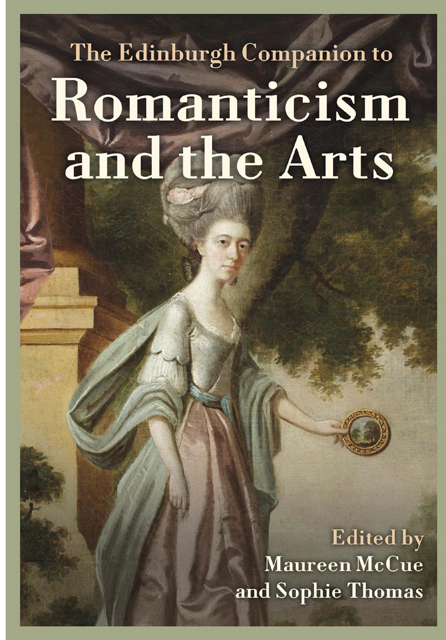15 - Romanticism, ‘Real’ Illusions and the Transformation of Experience in Modernity
Published online by Cambridge University Press: 25 April 2023
Summary
This chapter examines three developments, each intertwined with the others, which help shape the exchanges between the real, the actual and fiction/ illusion that are characteristic of London in the late eighteenth and early nineteenth century: the emergence of modern technologies of illusion; the proliferation and diversification of viewing/exhibition spaces; and the multiplication, democratisation and commercialisation of spectacle. The panorama provides an important example of these developments, particularly in the years between 1793, when the world’s first permanent panorama rotunda was opened by Robert Barker (1739–1806) in Leicester Square, and 1829, when the ‘Colosseum’ was opened by Thomas Hornor (1785–1844) in Regent’s Park, as the hub of an entertainment complex. During this period, the moving panorama, peristrephic panorama, and Diorama put the panoramic illusion into motion, while the immersive realities of the static panorama increased in scale, verisimilitude and ambition, to the point where they could become part of a second ‘reality’, in which audiences could be tempted to linger, socialise, and in so doing build a rich ‘second life’ as an extension of their first. But the phenomena traced in this chapter are broader and more diverse than these developments alone can suggest. It therefore places the panorama in relation to popular entertainments, such as the phantasmagoria; exhibition halls, such as the Egyptian Hall; and, more broadly, the urban/commercial milieu of London, which by the first years of the nineteenth century had become the largest city in the world, with more than a million inhabitants.
On this broad canvas, the chapter sketches some of the metamorphoses that lead ‘the modern subject to know experience not as Erfahrung but as Erlebnis; as the fragmentary moment in which the subject becomes detached from any locatedness within a broader understanding of life’ (Hetherington 2005, 197). The consequent sense of disorientation and loss, influentially described by William Wordsworth (1770–1850) in Book VII of The Prelude, is still commonly used to trope Romanticism as an anti-modernity (see, for example, Löwy and Sayre 2001). But, as this chapter will conclude, the exchanges between Romanticism and the milieu in which it emerged are much more equivocal than this suggests, and these equivocal exchanges are a crucial resource if we are to understand the inter-implication of ‘real’, actual and ‘imagined’ realms in modernity, which together shape the worlds within which everyday life is lived and possible futures are opened or closed.
- Type
- Chapter
- Information
- The Edinburgh Companion to Romanticism and the Arts , pp. 272 - 292Publisher: Edinburgh University PressPrint publication year: 2022



